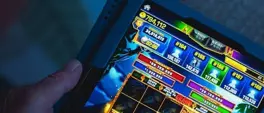'Electric donkeys': Scooters in China powered by sea-salt based sodium-ion batteries
Tasleem Gierdien
4 June 2025 | 10:00In China, they are ubiquitous... carrying people to shops, offices, metro stations and everywhere in between.
- CapeTalk
- John Maytham
- Afternoon drive with John Maytham
- China
- Electric Vehicles
- Renewable energy
- Sustainability

CapeTalk's John Maytham speaks to Renesh Thakoordeen, Energy Storage Testbed Project Lead at the Council for Scientific and Industrial Research (CSIR).
Listen below:
On the streets of China, you'll find, 'electric donkeys' (electric scooters) which are powered by sodium-ion batteries made from sea-salt, giving them an edge toward sustainability.
They are all over the country... carrying their owners to shops, offices, metro stations and everywhere in between - because they are practical, versatile, and a sustainable mode of travel.
These electric vehicles typically sell for between $400 and $660 (approx. R7,000 and R12,000), and are not powered by the mainstream lead-acid or lithium-ion cells, commonly used in electric two-wheelers.
Instead, their batteries are made from sodium, an abundant element that can be extracted from sea salt.
Next to the scooters stand a few fast-charging pillars, which can replenish the vehicles' power level from 0% to 80% in 15 minutes, according to Yadea, the major Chinese two-wheeler manufacturer.
Thakoordeen explains the pros and cons of lithium-ion batteries versus sodium-ion powered ones...
"Sodium is much more abundant and lithium is much more difficult to extract. The sodium-ion battery itself is less flammable and the dendrites formation is also minimal, which means the internal short circuit of the battery is much less likely, and it can be overcharged a bit more than lithium-ion batteries."
- Ranesh Thakoordeen, Energy Storage Testbed Project Lead - CSIR
"The drawback is that the energy density of sodium-ion batteries are just not where lithium is right now."
- Ranesh Thakoordeen, Energy Storage Testbed Project Lead - CSIR
"There is quite a bit of work being done across the globe in sodium and the actual next generation batteries, so the next generation we use refers to sodium-ion batteries, but what comes after that is 'solid state batteries'... there has been a lot of work done internationally on this - which might be the ultimate battery we talk about..."
- Ranesh Thakoordeen, Energy Storage Testbed Project Lead - CSIR
"China has invested billions in getting the next generation battery out and they may be ahead of the game when it comes to the battery that comes out after that, the so-called 'million-mile' battery."
- Ranesh Thakoordeen, Energy Storage Testbed Project Lead - CSIR
Scroll up to the audio player to listen to the full conversation.
Get the whole picture 💡
Take a look at the topic timeline for all related articles.














